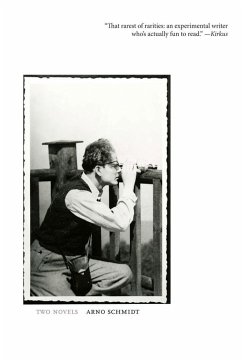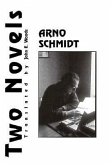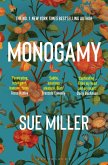This is the last in a four volume edition of the early fiction of one of the most daring and influential writers of postwar Germany, a man often called the German James Joyce due to the linguistic inventiveness of his fiction.
Among Schmidt enthusiasts, scholars, and fans, the two novels stand in sharp contrast to one another, the first belonging to his early, more realistic phase, and the second introducing his later, more experimental phase. But the hairs are not worth splitting.
Taking place in 1954, "The Stony Heart" concerns a man gathering documents for a study of a historian, and in the course of his search he gets involved with a woman who is married to a man who is involved with a woman, etc. "B/Moondocks" has parallel stories, one played out in a rural German town in the late 1950s, and the other on the moon in 1980 (the book was first published in German in 1960).
At the heart of both is an absolute commitment to two things: freeing language from its commonplace prose functions, and Schmidt's ongoing savage attack on the German mind-set and attitude that gave us two world wars in this century.
Hinweis: Dieser Artikel kann nur an eine deutsche Lieferadresse ausgeliefert werden.
Among Schmidt enthusiasts, scholars, and fans, the two novels stand in sharp contrast to one another, the first belonging to his early, more realistic phase, and the second introducing his later, more experimental phase. But the hairs are not worth splitting.
Taking place in 1954, "The Stony Heart" concerns a man gathering documents for a study of a historian, and in the course of his search he gets involved with a woman who is married to a man who is involved with a woman, etc. "B/Moondocks" has parallel stories, one played out in a rural German town in the late 1950s, and the other on the moon in 1980 (the book was first published in German in 1960).
At the heart of both is an absolute commitment to two things: freeing language from its commonplace prose functions, and Schmidt's ongoing savage attack on the German mind-set and attitude that gave us two world wars in this century.
Hinweis: Dieser Artikel kann nur an eine deutsche Lieferadresse ausgeliefert werden.








